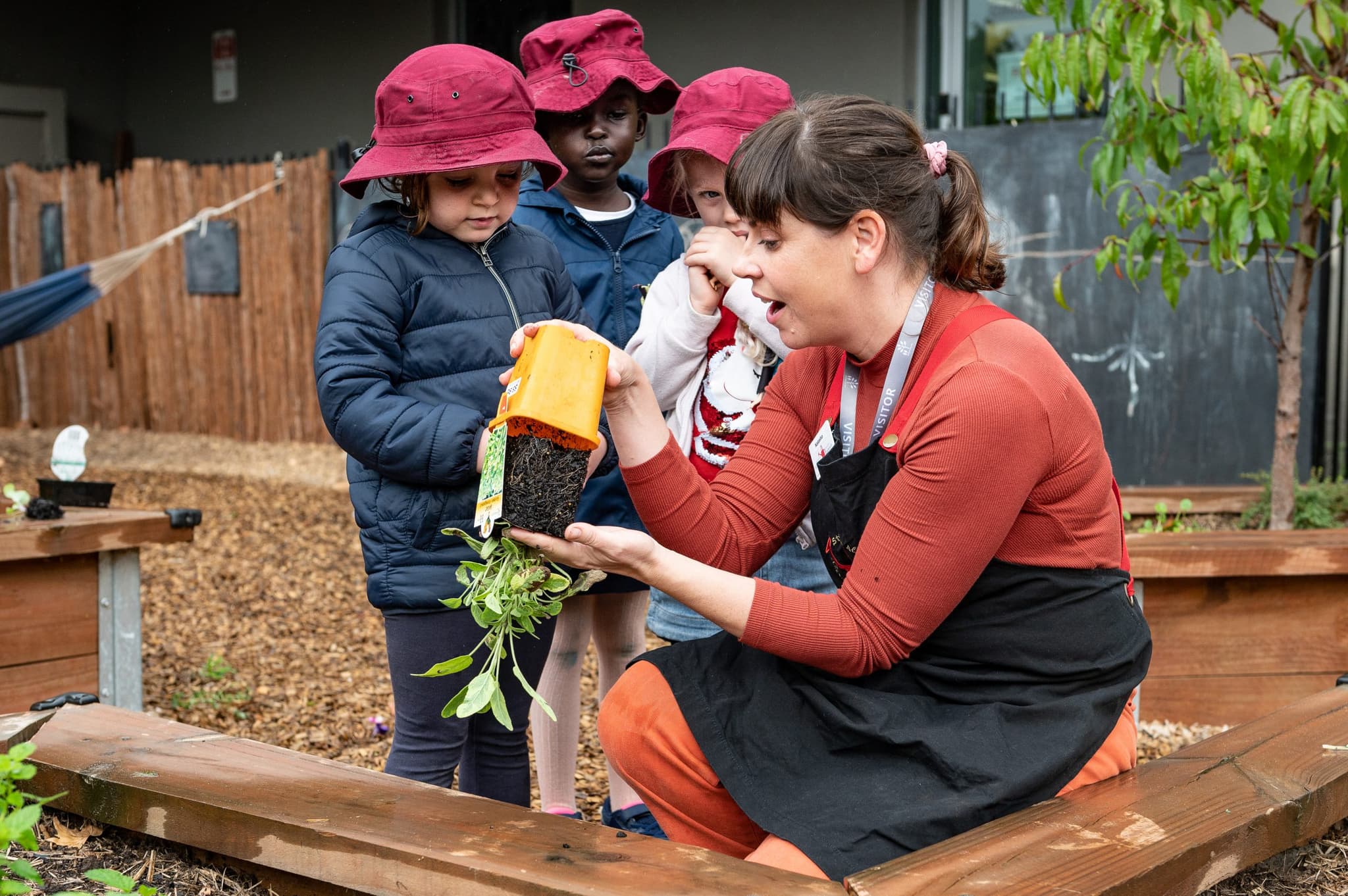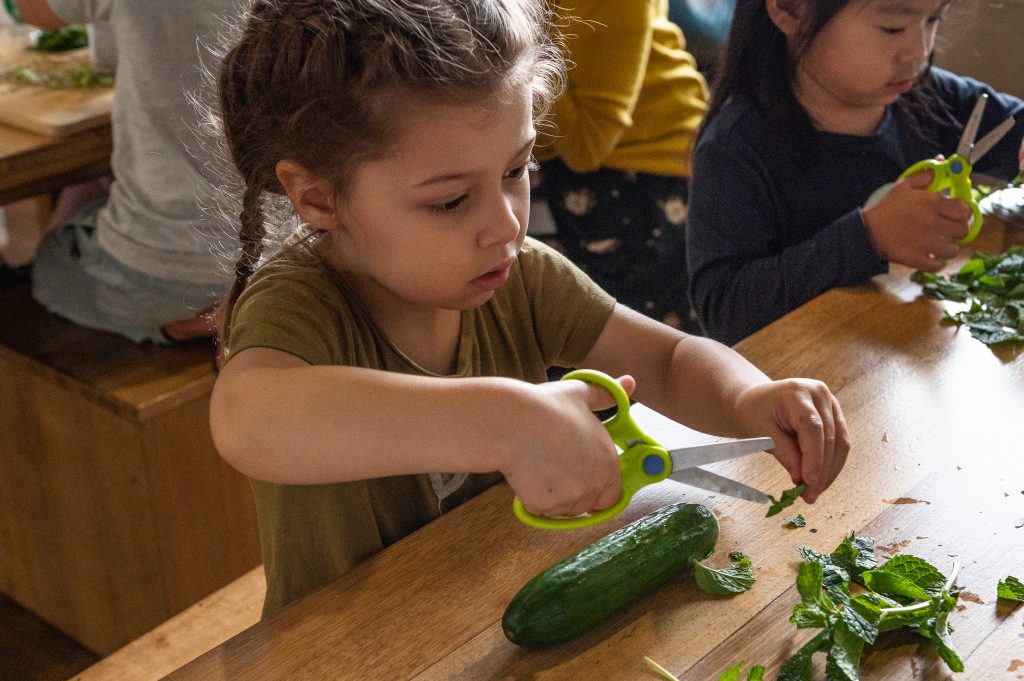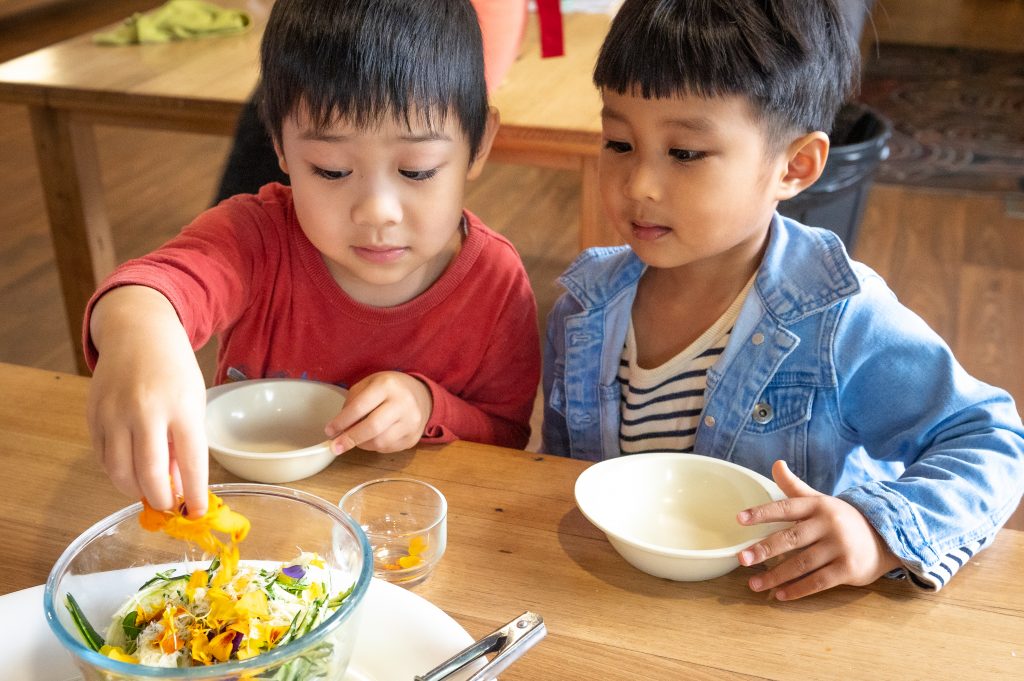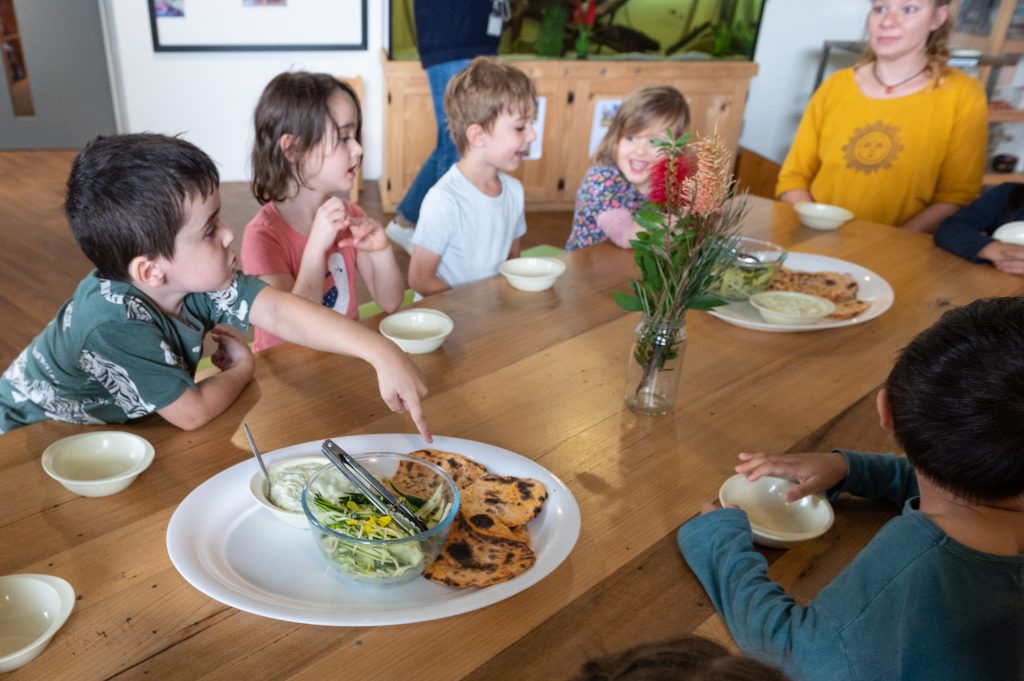Marketplace
Quality
Meaningful engagement with families and communities – the Stephanie Alexander Kitchen Garden Program difference

Freya Lucas
Aug 23, 2021
Save
When it comes to Exceeding the National Quality Standard (NQS), early childhood services are continually looking for ways to innovate and create genuine connections based on the unique needs of their families and communities.
Connection to community is at the heart of the work of the Stephanie Alexander Kitchen Garden Foundation (the Foundation). At schools and early learning settings all over the country, educators are embracing the Kitchen Garden program, which has been designed to develop their everyday practice with specialist resources and support aligned with both the NQS and the outcomes of the Early Years Learning Framework (EYLF).Alongside the ten kitchen garden program fundamentals, which outline what it takes to deliver a best-practice kitchen garden program, specialist support is provided through monthly educator catch-ups, professional development and community networking opportunities, and educational resources, including recipes and hands-on activities and experiences.At the heart of the flexible and adaptable program is a belief that children learn best through play and hands-on experiences. Even at the toddler age, children can be involved in the program by watering plants, sowing seeds, mulching the garden and harvesting the produce.

The program, however, isn’t just about being in the garden. The ‘kitchen’ element of the kitchen garden program sees children involved in stirring food, rolling dough, tasting new and exciting flavours, and in so doing, form positive relationships with food and nature for life.
Taking learning home
One of the most surprising outcomes for many services who embark on the Kitchen Garden journey is the way that children’s learning from the program extends far beyond the service fences.
When they participate in the program, children are encouraged to taste, smell and touch food, following its journey from the garden to the table, becoming curious about how the food grows, and interested in tasting the produce.
Once they start this process it finds its way into the children’s homes, the Foundation’s Early Childhood Project Officer Natasha Grogan explained: “They ask their families to try a parsley pesto or a raw zucchini salad and this is where the real education begins.”
Food Education Leader Julie Lemmon from Clarendon Children’s Centre in South Melbourne concurred, saying that parents frequently share how their children have benefited from the gardening and cooking experiences provided as part of the program.

“They recognise that knowledge gained in these early years is invaluable and supports children’s lifelong skills and positive attitudes to food and eating,” she said.
Connecting with community
As well as sharing their learning with their families, through participation in the Kitchen Garden Program, children connect with the wider community, sharing experiences, cultures and knowledge.
At Clarendon Children's Centre Ms Lemmon shared how the program enables children to connect with culture in a meaningful way:
“While making and (eating!) foods from a variety of different countries, we incorporate language and numeracy learning (counting up to ten in each country’s language), the flags and capital city of each country, as well as locating each country on our Foods of the World map. Every recipe cooked and shared together on Harmony Day was a recipe from the Kitchen Garden Program, Ms Lemmon explained. We connect with our local community at the South Melbourne Market through excursions to shop for the fresh food and other ingredients needed for our kitchen garden recipes. The children share their plans and experiences with our friendly Market traders who are now becoming very familiar with the program, too!” SAKGF and its link with the Exceeding themes
The third Exceeding theme, shaped by meaningful engagement with families and/or the community, guides services to look for ways to shape their practice by engaging meaningfully with families and/or the community, and asks educators to actively seek input, guidance and feedback from children, families and the community.
Meaningful engagement with families and/or the community helps to shift thinking, shape ongoing practice and foster a culture of inclusiveness and sense of belonging for all, ACECQA says.
Waverley Meadows Preschool joined the Stephanie Alexander Kitchen Garden Program as a way of tackling concerns about children’s eating habits, their knowledge and understanding about health and nutrition and more so about fresh foods.

It was an issue that educators had been working on addressing, but felt that they hadn’t had the support or knowledge to be able to plan for purposeful, meaningful and intentional learning experiences across all age groups at the centre. The program became a key improvement item on the centre’s Quality Improvement Plan. In establishing the program lots of work was done with the children revisiting healthy eating and the elements of establishing a vegetable garden. The Foundation’s project officer Ms Grogan, was consulted about the steps to getting the program started, through to the position of the garden and weed management. Families were involved in working bees to refurbish our garden beds, remove old soil and weeds and then add new soil.
When it came time for assessment and rating, Early Childhood Teacher Sarah Stoddart found that participation in the program gave the service the perfect platform to share a number of important aspects of the uniqueness of their service.
“The work we were doing with the children in the garden and with the Stephanie Alexander Kitchen Garden Program definitely assisted us in Quality Area 2: Children’s Health and Safety. Our assessor noted the meaningful engagement with families and the community through the introduction of the garden and how this was assisting educators to increase children’s understanding of healthy eating, gardening, harvesting and sustainability practices through the educational program,” she explained.
Next steps
Services who are interested in learning more about the program can access a full range of support from a dedicated team who have a background in education and working knowledge of the Kitchen Garden Program, and who are readily available to guide services through the program.
“It is a pleasure to bring the kitchen garden program to early childhood services across Australia,” Natasha Grogan from the Foundation said.
“We love having the opportunity to connect with individual services and give them the support and inspiration they need to grow, harvest, prepare and share with children.”
A Kitchen Garden membership offers this ongoing support, a wide range of resources, professional development opportunities, as well as collaborative programs to bring educators together. For more information, see here, or contact the Stephanie Alexander Kitchen Garden Foundation directly at: 13000 72543 or support@kitchengardenfoundation.org.au
Don’t miss a thing
Related Articles



















